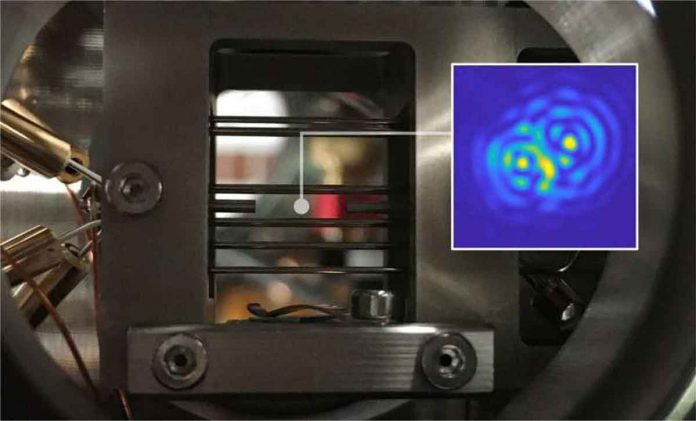Levitated nanoparticles are promising tools for sensing ultra-weak forces of biological, chemical, or mechanical origin, as well as for testing quantum physics fundamentals. Such applications, however, necessitate precise position measurement. Researchers at the University of Innsbruck’s Department of Experimental Physics have now demonstrated a new technique that improves the efficiency with which the position of a sub-micron levitated object is detected.
“Typically, we measure the position of a nanoparticle using a technique called optical interferometry, in which a portion of the light emitted by a nanoparticle is compared to the light from a reference laser,” explains Lorenzo Dania, a Ph.D. student in Tracy Northup’s research group. “However, a laser beam has a much different shape than the light pattern emitted by a nanoparticle, known as dipole radiation,” which currently limits measurement precision.
Method of self-interference
Tracy Northup, a professor at the University of Innsbruck, and her team’s new technique overcomes this limitation by replacing the laser beam with the light reflected by a mirror. The technique is based on a method for tracking barium ions developed in recent years by Rainer Blatt and his team at the University of Innsbruck. Researchers from the two teams proposed extending this method to nanoparticles last year.
The researchers demonstrated that using a nanoparticle levitated in an electromagnetic trap, this method outperformed other state-of-the-art detection techniques. The result opens up new possibilities for using levitated particles as sensors, such as measuring tiny forces, and for bringing the particles’ motion into quantum mechanics realms.
Physical Review Letters published the findings.

